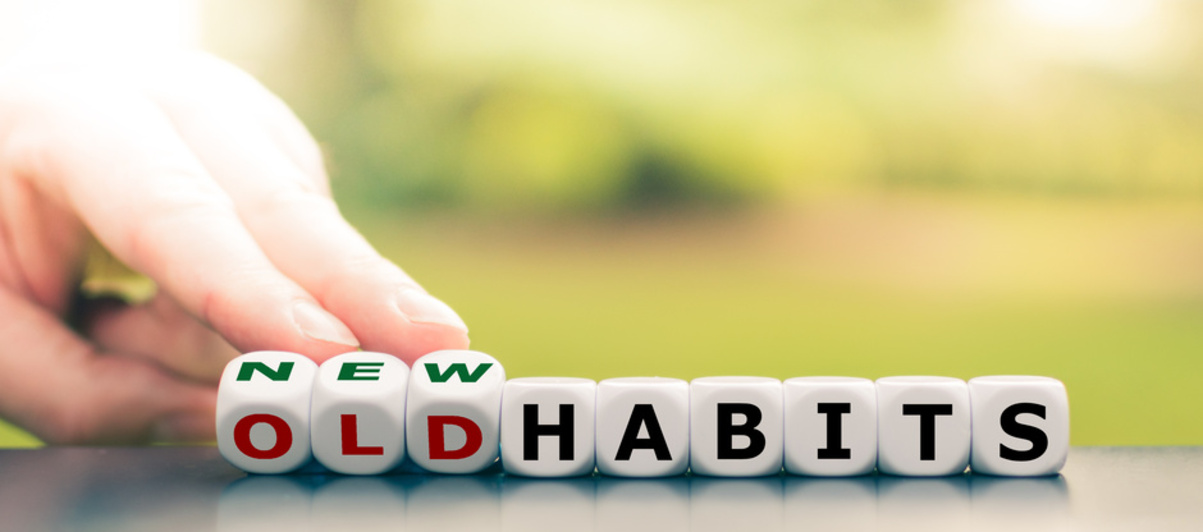Say it with me: “When the going gets tough, the tough get going.”
I’ll also give you full credit if you said “go shopping”. It might be more accurate, if less pithy.
It’s a romantic notion to think that we can force our way through any circumstance by sheer willpower alone. All we have to do is turn our thermostat to Tough and we’re good.
The truth is, when the going gets tough, we fall back, retrench, and run plays from the same playbook we’ve been using for the past 10 years. We lose the ability to act on willpower. Our habits take over.
Participants in a study played a matching game on the computer. If they figured out which shape to click on, they got a reward. Everyone figured this out pretty quickly. Here’s the interesting part.
Half the participants sat down and started playing; this was the control group. Half the participants were intentionally stressed out first. They submerged their hands in ice water for three minutes (or as long as they could stand it) while a stranger made observations on their reaction to having cold, wet hands.
Both groups did well in round 1.
In round 2, the rewards stopped. The control group started exploring, seeing if another shape would now provide a reward. Nothing did. The stressed group stuck to the behavior they learned in round 1, even though it no longer provided a reward.
In round 3, original reward resumed. The control group quickly recognized this and resumed the original learned behavior. Since the stressed group never stopped the original behavior, they immediately started rewards again.
The researchers concluded that our habits don’t fall apart under pressure. If anything, they assert themselves. They’re dialed in.
We have learned through experience that a specific behavior produced a desired result, usually meeting a need. We feel the need, we anticipate the reward, we act, we enjoy the reward. That’s a habit.
When the reward changed in the study, the need was no longer being met. The behavior should have changed, too, as participants searched for a new behavior that would meet the need. The control group felt free to explore new behaviors. The stressed group exploited the behavior that used to work.
I’m no psychoneuroendocrinologist, but this makes perfect sense to me. When you’re stressed, your basic human needs of Safety, Security, and Survival feel threatened. You retrench. Your focus shifts to making sure those needs are met. A familiar behavior feels comfortable, even if it isn’t meeting our needs. Other studies have shown that we quickly abandon our goals and resort to old habits when we get stressed.
Giving up smoking is the easiest thing in the world. I know because I’ve done it thousands of times.
Mark Twain (or someone)
Good habits will carry you through rough times. They’re known. They’re familiar. They become part of our comfort zone.
So do bad habits.
When you’re stressed out, you can learn new behaviors, but it’s a bad time to change habits. You can start a new job, but you might do it the same way you did your old one. If you quit smoking, you might light up again as soon as things get rough.
If you’re trying to install a new habit, watch for stressors, especially if you keep reverting to an old habit. This is when Fear and Doubt are going to hit you the hardest. You can’t change. You’ll always be like this. This is who you are.
So you missed a trip to the gym? Don’t berate yourself—that just adds to the pressure. Just pack your bag and go tomorrow.
We can turn this behavior to our advantage. If we develop habits of exercise and healthy living, guess what happens when we get stressed out? We hit the gym. We fix a smoothie. It’s not a forced behavior at this point—it comes naturally.
Sooner or later, the going will get tough again. What new habits do you want to have in place when it does? Get going.
Question: What one thing will you change to make your next challenge easier? Share your thoughts in the comments, on Twitter, LinkedIn, or Facebook.

